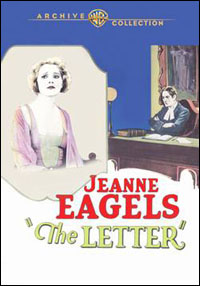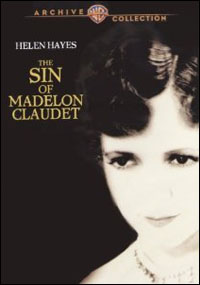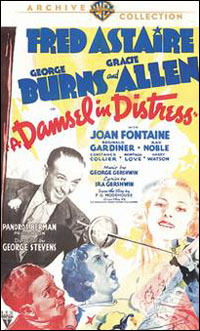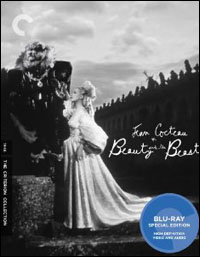
*
Jeanne Eagels is a name that is forgotten, perhaps, to history. A vibrant actress, she took Broadway by storm as Sadie Thompson, that lost soul stranded on Bora-Bora, in the 1922 New York production of Somerset Maugham's Rain. What a career she might have had is unknown; universal acclaim seems to have exacerbated strange behavior and addiction, soon leading to oblivion and early death.
A poor girl from a large family, Eagels (1890-1929) left Kansas City in her early teens to tour with a traveling show. Six or so years later she reached New York, where she became a Follies girl. By 1918 she had graduated to the drama, acting for Belasco in Daddies. Roles of increasing prominence led to overnight stardom in Rain; Eagels was a sensation as Sadie, the gal with a past from Frisco.
Her next major role was just as good: Roxie Hart in Maurine Dallas Watkins' 1926 play Chicago. But Eagels dropped out after a week of rehearsals. Prior to rehearsals, she insisted that they fire the director and hire George Abbott instead. Abbott gives an enlightening account in his autobiography, "Mister Abbott": "When people in the theatre prove difficult, you usually want to get away from them as soon as possible, but Jeanne Eagels' talent was so great that it was impossible to feel any resentment for her irrational behavior."
Eagels rebounded in 1927, starring opposite Leslie Howard in the imported boulevard comedy Her Cardboard Lover. Later that year she made her first major film, "Man, Woman and Sin" opposite John Gilbert. (This before films started talking and Gilbert's career collapsed.) But Eagels was already in trouble. In 1925 she embarked on a tempestuous marriage with Ted Coy, the legendary All-American fullback from Yale. This ended in 1928, with claims of abuse from her — she said Coy slugged her and broke her jaw, in an attempt to derail her movie career — and claims of heroin addiction from him. Eagels was so professionally unreliable that after missing numerous performances of the post-Broadway tour of Her Cardboard Lover — it's said that she never even showed up in Milwaukee — she was hit with an 18-month suspension by Actors' Equity.
 |
But "The Letter" and a subsequent film, "Jealousy," were to be the end for Eagels. She returned to New York to resume her stage career, but wound up dead of an apparent overdose on Oct. 7, 1929. The Oscar people, in their second year, gave her their first posthumous nomination; Mary Pickford won, playing what had been Helen Hayes's stage role in "Coquette." Bette Davis later starred in a 1940 remake of "The Letter," also receiving an Oscar nomination. It's that kind of role.
The 1929 "Letter" was one of those long lost films, recently located and restored; with the exception of a minimal amount of missing soundtrack, it's in surprisingly good shape. Yes, it's a primitive talkie, running a mere sixty-five minutes; but Eagels gives a performance well worth seeing. It is an old-fashioned style of acting, but one can begin to understand why her performance in Rain is considered legendary. (Old-time Broadway chronicles place it in a league with Laurette Taylor's Glass Menagerie.) Here, Eagels seems to be literally jumping out of her skin. I wonder how they teach that in acting school.
*
 |
Hayes made her feature film debut in 1931 with "The Sin of Madelon Claudet," a role in which she is totally unlike the little old lady Helen Hayes that most of us are familiar with. Here she plays a naïve farmgirl with a delightfully upturned nose who runs off with a struggling artist to the big city, Paree; after which said artist ships back to his wealthy family in America, leaving poor Madelon with child. She becomes mistress to a count, who turns out to be a jewel thief, and winds up holding the bag (of jewels) and unjustly imprisoned. Following which Hayes becomes a dazzling prostitute, and then a not-so-dazzling prostitute, and then a cheap and desperate prostitute and grifter. As the film ends, she is — well, a little old lady, looking not unlike the Hayes who won a 1970 Oscar for "Airport."
But here is Hayes in 1931, winning her first Oscar for "Madelon Claudet." I suppose that movie experts can easily reel off a whole slew of actors who won statues 40 years apart, but it seems pretty impressive to me. "Madelon Claudet" is not the best film in history, no, but it is reasonably well done. When your big film debut is in trouble, it's helpful to be able to get expert doctoring from the hottest writers in town — Charles MacArthur (husband to Hayes) and Ben Hecht, who had shaken things up in 1928 with The Front Page.
The film was, not surprisingly, derived from a Broadway play. The Lullaby was written in 1923 by Edward Knobloch, who is best known for that fantastical bit of claptrap he whipped up in 1911 called Kismet. Florence Reed starred in the play; but if Jeanne Eagels didn't get to make "Rain" and Helen Hayes didn't get to make "Coquette" and Kit Cornell didn't get to make "The Letter," why shouldn't Hayes have a crack at this one? Let me add only that it is almost unearthly to get the opportunity to watch a performance given by Hayes at that relatively early moment of her long career. Or any performance by Jeanne Eagels, so here's a double thanks to Warner Archive. Make that a triple. Read on.
 |
But the damsel doesn't matter. This is a surprisingly dandy film. And the "Fun House" — in which Fred and Gracie perform the "run-around" step that Fred and his sister Adele featured in their vaudeville days, later incorporating it into the "Swiss Miss" number in their 1924 Gershwin musical Lady Be Good — is something to be seen.
*
 |
Cocteau (1889-1963) was one of those artistes who flourished in Paris between the wars, a poet, playwright, novelist, filmmaker, and well-known opium addict. Intimate of other one-name legends ranging from Picasso to Piaf. Cocteau's range of interests help make "Beauty and the Beast" unparalleled. When he made a film, he didn't just write it and direct it; as was the case with the best of Chaplin and Welles, this 1946 "Beauty and the Beast" seemed to spring from his unrestrained mind and unbridled imagination. The tale, as you know, is about a girl, an enchanted castle, and the beast within. Josette Day is the Beauty and Jean Marais the Beast. Seeing as how this new release is a Blu-ray from Criterion, Cocteau's visual feast is now even more tasty. Watch Cocteau's "Beauty and the Beast" when you're in the mood for something entirely original and entirely enthralling, with no singing teapots.
(Steven Suskin is author of the recently released Updated and Expanded Fourth Edition of "Show Tunes" as well as "The Sound of Broadway Music: A Book of Orchestrators and Orchestrations," "Second Act Trouble" and the "Opening Night on Broadway" books. He also pens Playbill.com's Book Shelf and On the Record columns. He can be reached at [email protected].)
*
Visit PlaybillStore.com to check out theatre-related DVDs for sale.









